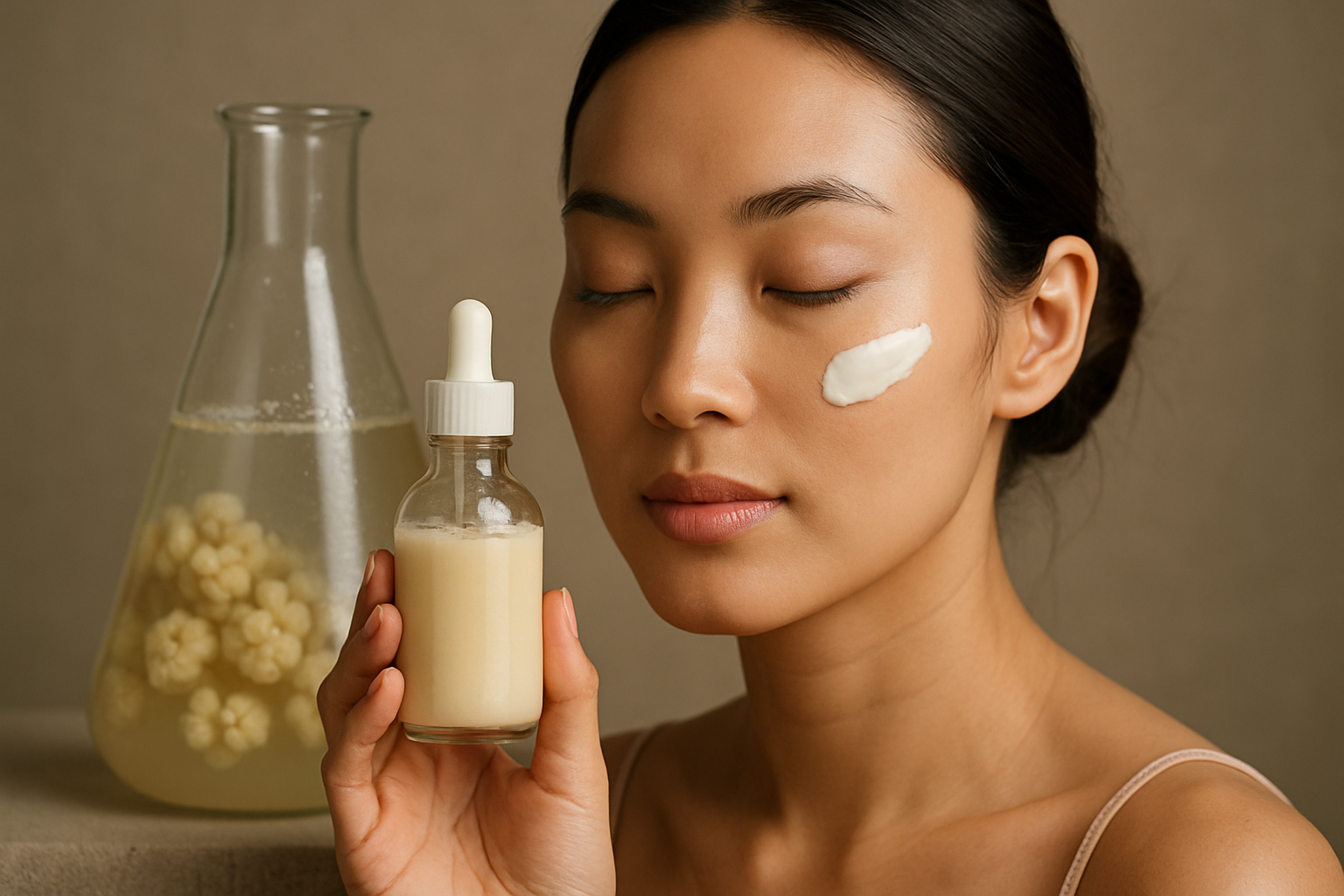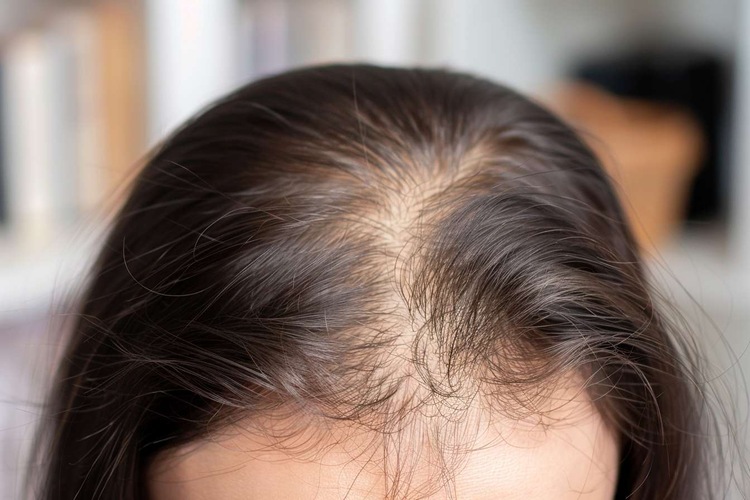Mycocosmetics: The Fungi-Powered Future of Skincare
In the ever-evolving world of beauty and skincare, a groundbreaking trend is emerging from an unexpected source: mushrooms. This isn't about applying shiitakes to your face or incorporating portobello masks into your routine. Instead, it's a sophisticated approach to harnessing the power of fungi for skincare, known as mycocosmetics. This innovative field is poised to revolutionize how we think about and approach skin health, offering a sustainable, effective, and scientifically-backed alternative to traditional skincare products. As consumers become increasingly conscious of both the efficacy and environmental impact of their beauty choices, mycocosmetics stands at the forefront of a new era in skincare, promising transformative results through the fascinating world of fungi.

Key developments included the isolation of specific compounds within mushrooms that demonstrated remarkable skin benefits. Beta-glucans, for instance, were found to have powerful anti-inflammatory and moisture-retaining properties. Kojic acid, derived from several species of fungi, emerged as a potent skin-brightening agent. These discoveries paved the way for a new generation of skincare products that leverage the unique properties of fungi.
Fungi’s Fantastic Five: Top Mushrooms in Skincare
While numerous mushroom species offer skincare benefits, five have emerged as superstars in the mycocosmetics world:
-
Reishi (Ganoderma lucidum): Known as the “mushroom of immortality,” Reishi is prized for its anti-aging properties. It’s rich in triterpenes, which help reduce inflammation and protect against free radical damage.
-
Chaga (Inonotus obliquus): This antioxidant powerhouse is packed with melanin, offering natural UV protection and skin-soothing benefits.
-
Tremella (Tremella fuciformis): Often called the “snow mushroom,” Tremella has exceptional moisturizing properties, capable of holding up to 500 times its weight in water.
-
Lion’s Mane (Hericium erinaceus): This mushroom stimulates the production of nerve growth factor (NGF), potentially beneficial for sensitive or reactive skin.
-
Cordyceps (Cordyceps militaris): Known for its energy-boosting properties when consumed, Cordyceps in skincare helps improve skin elasticity and tone.
The Science Behind Mycocosmetics
The efficacy of mycocosmetics is rooted in the unique biochemical composition of mushrooms. Fungi produce a vast array of bioactive compounds, many of which have direct benefits for skin health:
-
Beta-glucans: These complex polysaccharides are powerful immune modulators and have been shown to reduce skin inflammation and promote wound healing.
-
Terpenoids: Many mushrooms produce terpenoids, which exhibit antioxidant and anti-inflammatory properties, crucial for combating signs of aging.
-
Phenolic compounds: These act as potent antioxidants, protecting the skin from environmental stressors and UV damage.
-
Enzymes: Certain mushrooms produce enzymes that can help in gentle exfoliation and skin renewal.
-
Vitamins and minerals: Mushrooms are rich sources of vitamins B and D, as well as selenium and zinc, all essential for maintaining healthy skin.
Recent studies have demonstrated the potential of mushroom-derived compounds in addressing various skin concerns. For example, a 2019 study published in the Journal of Cosmetic Dermatology found that a serum containing Ganoderma lucidum extract significantly improved skin hydration and elasticity after eight weeks of use.
Sustainability and Ethical Sourcing in Mycocosmetics
One of the most compelling aspects of mycocosmetics is its potential for sustainability. Mushrooms are incredibly efficient organisms, capable of rapid growth with minimal resources. Many species can be cultivated on agricultural waste products, offering a circular economy approach to skincare ingredient production.
Moreover, the cultivation of mushrooms for cosmetic use often has a lower environmental impact compared to traditional plant-based ingredients. Mushrooms require less water, land, and energy to produce, and their growth can be easily controlled in indoor environments, reducing the need for pesticides and herbicides.
Ethical sourcing is also a key consideration in the mycocosmetics industry. Many companies are partnering with local communities to sustainably wild-harvest certain mushroom species, providing economic opportunities while ensuring the preservation of natural habitats.
Challenges and Future Directions
While the potential of mycocosmetics is immense, the field faces several challenges:
-
Standardization: The potency of mushroom extracts can vary widely depending on growing conditions and extraction methods. Developing standardized processes is crucial for ensuring consistent product quality.
-
Education: Many consumers are unfamiliar with the benefits of mushrooms in skincare. Educating the public about the science behind mycocosmetics is essential for broader adoption.
-
Regulation: As a relatively new field, regulatory frameworks for mycocosmetics are still evolving. Clear guidelines for safety testing and efficacy claims are needed.
-
Allergies: While rare, some individuals may be allergic to certain mushroom species. Proper testing and labeling are critical to ensure consumer safety.
Looking ahead, the future of mycocosmetics is bright. Researchers are exploring new mushroom species and innovative extraction techniques to unlock even more skincare benefits. The integration of biotechnology, such as using mushroom mycelium as a growing medium for other beneficial compounds, holds promise for creating highly effective, multifunctional skincare ingredients.
As consumers become more aware of the power of fungi for skin health, we can expect to see mycocosmetics move from niche products to mainstream skincare staples. This shift represents not just a trend, but a fundamental reimagining of our relationship with nature and its potential to enhance our well-being.
The rise of mycocosmetics marks an exciting new chapter in the beauty and wellness industry. By harnessing the ancient wisdom of fungi and combining it with modern scientific understanding, we are unlocking a world of skincare possibilities that are not only effective but also sustainable and ethically sourced. As research continues to unveil the myriad benefits of mushrooms for skin health, mycocosmetics stands poised to redefine our approach to beauty and self-care, offering a glimpse into a future where nature’s most overlooked organisms become our greatest allies in the quest for radiant, healthy skin.




